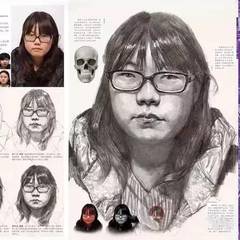SAT阅读文章Andrew Johnson vetoed the Civil Rights Act of 1866
SAT阅读:AndrewJohnsonvetoedtheCivilRightsActof1866
英语学习AI级干货
选题:
19AndrewJohnsonvetoedtheCivilRightsActof1866primarilybecausehebelieved?
(A)itsprovisionswerealreadycoveredintheFourteenthAmendment
(B)itviolatedstates’rights
(C)itshouldhaveincludedwomen’srights
(D)itwouldbeunnecessaryonceReconstructionwentintoeffect
(E)itwasnotstrongenoughtocounteracttheblackcodes
Thecorrectansweris(B).
选段:
目的方式
TherootsoftheCivilRightsActof1866aretraceabletotheEmancipationProclamation,deliveredbyPresidentAbrahamLincolnonJanuary1,1863,whichfreedslavesheldinbondageintherebelstates.Insomeways,theproclamationappearstohavebeencraftedtoachievecertainmilitarygoalsratherthanadvancetheabolitionistmovementperse.Thedeclarationoffreedomforblacksintherebelstateswasintendedtodestabilizeplantationsocietybyencouragingslavestochallengeauthority.SlavesforcedintoserviceaslaborersonbehalfoftheSouthernArmywouldbecomeinsubordinate.Plantations,drainedofsouthernwhitemenwhoweredrawnintomilitaryservice,wereadministeredbythewivesandelderlymen.Notsurprisingly,slaveswouldbegintochallengetheirauthorityinwaysthatservedasadistractiontothewareffort.
事态发展
Althoughtheproclamationwasgroundedinmilitarynecessity,however,itquicklytransformedthepoliticallandscapeandstrengthenedoppositiontotheinstitutionofslavery.AsPresidentLincolnnotedinDecember1863,slaveryhadnowbecomea"moralimpossibility"inAmericansociety.Thegrowingantislaverysentimentwas/confirm/iedbyelectionresultsin1864,whichsweptintoCongressacoregroupofRepublicanleaderssupportiveofprogressiveReconstructioneffortsandprotectionoftherightsandinterestsofblacks.
AndrewJohnson'sascensiontothepresidencyfollowingLincoln'sassassinationsignaledaturningpointinthepostwarReconstructionefforts.BeginninginMay1865,PresidentJohnsoninstitutedapolicyofPresidentialReconstructiondesignedtoreconstitutetheUnionasquicklyandpainlesslyaspossible.LincolnunderstoodthattherestorationoftheSouthernstatestotheUnionwasinsufficientwithoutareconstructionofSouthernbeliefsandattitudesconcerningslaveryandtheSouthernwayoflife.ButJohnson'sReconstructioneasedrequirementsforreentryintotheUnionandencouragedadefiantassertionofstates'rightsandresistancetoblacksuffrage.AsthehistorianEricFonerwrotein1988,Johnson'sReconstructionempoweredwhiteSouthernersto"shapethetransitionfromslaverytofreedomanddefineblacks'civilstatuswithoutNortherninterference"(p.189).
选文:
CivilRightsActOf1866
Actof1866
TheCivilRightsActof1866(14Stat.27)wasamomentouschapterinthedevelopmentofcivicequalityfornewlyemancipatedblacksintheyearsfollowingtheCivilWar.TheactaccomplishedthreeprimaryobjectivesdesignedtointegrateblacksintomainstreamAmericansociety.First,theactproclaimed"thatallpersonsbornintheUnitedStates...areherebydeclaredtobecitizensoftheUnitedStates."Second,theactspecificallydefinestherightsofAmericancitizenship:
Suchcitizens,ofeveryraceandcolor,andwithoutregardtoanypreviousconditionofslaveryorinvoluntaryservitude,...shallhavethesamerightineverystateandterritoryintheUnitedStates,tomakeandenforcecontracts,tosue,beparties,andgiveevidence,toinherit,purchase,lease,sell,hold,andconveyrealandpersonalproperty,andtofullandequalbenefitofalllawsandproceedingsforthesecurityofpersonandproperty,asisenjoyedbywhitecitizens,andshallbesubjecttolikepunishment,pains,andpenalties,andtononeother,anylaw,statute,ordinance,regulation,orcustomtothecontrarynotwithstanding.
Third,theactmadeitunlawfultodepriveapersonofanyoftheserightsofcitizenshiponthebasisofrace,color,orpriorconditionofslaveryorinvoluntaryservitude.
TherootsoftheCivilRightsActof1866aretraceabletotheEmancipationProclamation,deliveredbyPresidentAbrahamLincolnonJanuary1,1863,whichfreedslavesheldinbondageintherebelstates.Insomeways,theproclamationappearstohavebeencraftedtoachievecertainmilitarygoalsratherthanadvancetheabolitionistmovementperse.Thedeclarationoffreedomforblacksintherebelstateswasintendedtodestabilizeplantationsocietybyencouragingslavestochallengeauthority.SlavesforcedintoserviceaslaborersonbehalfoftheSouthernArmywouldbecomeinsubordinate.Plantations,drainedofsouthernwhitemenwhoweredrawnintomilitaryservice,wereadministeredbythewivesandelderlymen.Notsurprisingly,slaveswouldbegintochallengetheirauthorityinwaysthatservedasadistractiontothewareffort.
AsecondmilitarygoalwastosecurealaborsourcetosupporttheeverexpandingUnionmilitaryefforts.PerhapsthemostradicalfeatureoftheEmancipationProclamationwastheenrollmentoffreeandnewlyemancipatedblacksintomilitaryservice.Blacksoldiers,thoughnotconsideredequaltotheirwhitecounterparts,neverthelessplayedacrucialroleinconstructingandholdingfortifiedpositions,andensuredtheflowofgoodsalongUnionsupplylines.
Althoughtheproclamationwasgroundedinmilitarynecessity,however,itquicklytransformedthepoliticallandscapeandstrengthenedoppositiontotheinstitutionofslavery.AsPresidentLincolnnotedinDecember1863,slaveryhadnowbecomea"moralimpossibility"inAmericansociety.Thegrowingantislaverysentimentwas/confirm/iedbyelectionresultsin1864,whichsweptintoCongressacoregroupofRepublicanleaderssupportiveofprogressiveReconstructioneffortsandprotectionoftherightsandinterestsofblacks.
AndrewJohnson'sascensiontothepresidencyfollowingLincoln'sassassinationsignaledaturningpointinthepostwarReconstructionefforts.BeginninginMay1865,PresidentJohnsoninstitutedapolicyofPresidentialReconstructiondesignedtoreconstitutetheUnionasquicklyandpainlesslyaspossible.LincolnunderstoodthattherestorationoftheSouthernstatestotheUnionwasinsufficientwithoutareconstructionofSouthernbeliefsandattitudesconcerningslaveryandtheSouthernwayoflife.ButJohnson'sReconstructioneasedrequirementsforreentryintotheUnionandencouragedadefiantassertionofstates'rightsandresistancetoblacksuffrage.AsthehistorianEricFonerwrotein1988,Johnson'sReconstructionempoweredwhiteSouthernersto"shapethetransitionfromslaverytofreedomanddefineblacks'civilstatuswithoutNortherninterference"(p.189).
Notsurprisingly,aswhitesregainedsocialandgovernmentalcontrolfromUniongovernorsinaccordwithJohnson'spolicies,theyoftenundertooksimultaneouseffortstoseverelylimitaccessbynewlyemancipatedblackstotheordinaryrightsandlibertiesenjoyedbywhites.Formerconfederatestates—suchasSouthCarolina,Mississippi,andAlabama—passedandstrictlyenforced"BlackCodes,"oppressivelawsthatappliedonlytoblacks.BlackCodestookavarietyofforms,includingmandatoryapprenticeshiplaws,oppressivelaborcontractlaws,strictvagrancylaws,andrestrictivetravellaws.BlackCodesoftenauthorizedmoreseverepunishmentofblacksthanofwhitesfortheidenticalconduct.
InadditiontotheBlackCodes,Southernersengagedinprivateactsofdiscriminationandoutrightviolenceagainstfreedmen.AsFonerrecounts,"thepervasivenessofviolence[againstblacksaftertheCivilWar]reflectedwhites'determinationtodefine[freedomintheirownway,]...inmattersoffamily,church,labor,orpersonaldemeanor"(p.120).HistorianRandallKennedynotesthatthissometimesledtothebeatingorkillingofblacksforsuch"infractions"as"failingtostepoffsidewalks,objectingtobeatingsoftheirchildren,addressingwhiteswithoutdeference,andattemptingtovote"(1997,p.39).
AlthoughtheThirteenthAmendmenthadbeenratified,andslaveryconstitutionallyabolished,prevailingpoliciesintheSouththreatenedtomakeamockeryofthefreedomgrantedtoblacks.UndertheleadershipofRepresentativeThaddeusStevensofPennsylvania,theJointCommitteeonReconstructionwasformedtomonitorandreacttoraciallyoppressiveconditionsintheSouth.TheJointCommittee,ingrapplingwiththequestionof"howthelibertiesoftheblackraceweretobemadesecure,"ultimatelyarrivedattheconclusionthatadditionalmeasuresneededtobeadoptedforthesafetyandelevationofnewlyemancipatedblacks.OneofthoseadditionalmeasureswouldbecometheCivilRightsActof1866.
LEGISLATIVEDEBATE
SenatorLymanTrumbullofIllinoisintroducedthebillthatwouldlaterbecometheCivilRightsActof1866.TrumbulltoldtheThirty-NinthCongressthattheproposedlegislationwasneededtoreinforcethegrantoffreedomtoblackssecuredbyratificationoftheThirteenthAmendment:"WhenitcomestobeunderstoodinallpartsoftheUnitedStatesthatanypersonwhoshalldepriveanotherofanyrightorsubjecthimtoanypunishmentinconsequenceofhiscolororracewillexposehimselftofineandimprisonment,Ithinksuchactswillsooncease."TrumbulldeclaredhisintentiontodestroythediscriminatoryBlackCodes.OtherRepublicancongressmenfocusedontherightsofblacks"tomakecontractsfortheirownlabor,thepowertoenforcepaymentoftheirwages,andthemeansofholdingandenjoyingtheproceedsoftheirtoil."Ifstatescoulddepriveblacksofthesefundamentalrights,asoneCongressmanremarked,"Idemandtoknow,ofwhatpracticalvalueistheamendmentabolishingslavery?"
THEBILL'SLIMITEDDEFINITIONOFRIGHTS
Althoughradicalforitstime,itisimportanttounderstandthelimitsofthebill.ThebillplainlysoughttooverruletheBlackCodesbyaffirmingthefullcitizenshipofnewlyemancipatedblacksandbydefiningcitizenshipintermsapplicabletoallpersons.Underthebill,thedesignationasanAmericancitizenmeantthatonepossessedcertainspecificrights,suchastherighttomakeandenforcecontracts,therighttofilelawsuitsandparticipateinlawsuitsaspartiesorwitnesses,andtherighttoinherit,purchase,lease,sell,holdandconveyrealproperty.Indefiningcitizenshipinthismanner,theacteffectivelyoverruledstate-sponsoredBlackCodes.
Atthesametime,theactspecifiedthattheserightswere"civilrights,"givingthefirstclearindicationthat,inthecontextofracerelations,thereweredifferentlevels,ortiers,ofrightsatstake."Civilrights"atthistimewereunderstoodintermsofpropertyrights,contractrights,andequalprotectionofthelaws.Theserightsweredistinctfrom"politicalrights,"whichinvolvedtherighttovoteandholdpublicoffice,and"socialrights,"whichrelatedtoaccesstopublicaccommodationsandthelike.Thusthebillreflectedthecommonviewthatpoliticalparticipationandsocialintegrationweremoreorless"privileges"andnotbasicelementsofcitizenship.
PoliticalrightswouldlaterbesecuredbytheratificationoftheFifteenthAmendmentandthepassageofcivilrightslegislationin1870,andrevisitednearlyacenturylaterintheCivilRightsActof1965.Congress'sattempttograntsocialrightstoblacksintheCivilRightsActof1875wasstruckdownbytheUnitedStatesSupremeCourtasunconstitutionalinTheCivilRightsCases(1883).However,CongressultimatelyprevailedingrantingsocialrightstoblackswiththepassageoftheCivilRightsActof1964.
PRESIDENTIALVETO
Despitetheseapparentlimitsonthescopeofprotectionsaffordedundertheact,PresidentJohnsonneverthelessvetoedthebill.Johnson'sprincipalobjectionwasamatterofprocedure.InhisvetomessagehearguedthatCongresslackedtheconstitutionalauthoritytoenactthebillbecause"elevenofthethirty-sixStatesareunrepresentedinCongressatthepresenttime."Johnsonalsomadeclear,however,thatherejectedtheveryideaoffederalprotectionofcivilrightsforblacks,arguingthatsuchapracticeviolated"allourexperienceasapeople"andrepresentedadisturbingmove"towardcentralizationandtheconcentrationofalllegislativepowersinthenationalgovernment."
PerhapsthemoststrikingfeatureofJohnson'svetomessagewasitsracismandinflammatorylanguage.Forexample,Johnsonobjectedthattheactestablished"forthesecurityofthecoloredracesafeguardswhichgoinfinitelybeyondanythatthegeneralgovernmenthaseverprovidedtothewhiterace.Infact,thedistinctionofraceandcolorisbythebillmadetooperateinfavorofthecoloredandagainstthewhiterace."Johnsonalsoarguedthatblacksweresimplyunpreparedtobecomecitizens,atleastascomparedtoimmigrantsfromabroad,because,havingbeenslaves,theywere"lessinformedastothenatureandcharacterofourinstitutions."Johnsonevenmentionedthesupposedthreatofinterracialmarriage,suggestingthatprotectionofthecivilrightsofnewlyemancipatedblackswouldsomehowupsettheestablishedsocialhierarchy.
TheeffectofJohnson'svetowastostrengthenRepublicanoppositiontohispresidentialpolicy.CongressoverrodethevetoandenactedtheCivilRightsActof1866.ItalsoproposedtheFourteenthAmendmenttotheU.S.Constitutiontoremovealldoubtaboutitspowertopassthissortofprotectivelegislation.Unlikethe1866act,however,theFourteenthAmendment,ratifiedtwoyearslater,employsgenerallanguagetoprohibitdiscriminationagainstcitizensandtoensureequalprotectionunderthelaws.IncorporatingtheseprotectionsintotheConstitutionmarkedacriticalmomentinthedevelopmentoffederalpoweroverthestateswhenitcametoprotectingtherightsofcitizens.Toemphasizethisnewcommitmenttofederalpower,theCivilRightsActof1866wasreenactedassection18oftheCivilRightsActof1870.The1870actprohibitedconspiraciesoftwoormorepersonsthatthreatenedacitizen's"enjoymentofanyrightorprivilegegrantedorsecuredtohimbytheConstitutionorlawsoftheUnitedStates."Italsoextendedfederalprotectiontovotingrightsforblacks.
THEACT'SENDURINGSPIRIT
ThespiritoftheCivilRightsActof1866livesoninmodernantidiscriminationlaws.onesuchlaw(42U.S.C.,section1981)provides,inlanguagederivedlargelyfromsection1ofthe1866act,that"allpersonswithinthejurisdictionoftheUnitedStatesshallhavethesamerightineveryStateandTerritorytomakeandenforcecontracts,tosue,beparties,giveevidence,andtothefullandequalbenefitofalllawsandproceedingsforthesecurityofpersonsandpropertyasisenjoyedbywhitecitizens."Thislawisoftenreliedonbyplaintiffsallegingemploymentdiscriminationordiscriminationinpublicorprivateeducation.Anotherlaw(42U.S.C.,section1982),whichwasoriginallyapartofsection1ofthe1866act,"barsallracialdiscrimination,privateaswellaspublic,inthesaleorrentalofproperty,"andisfrequentlyusedinconnectionwithhousingdiscriminationlawsuits.Alaw(42U.S.C.,section1983)grantingprivateindividualstodaytherighttosuefordeprivationofcivilrightsbystateofficialsechoessection2ofthe1866actaswellasasubsequentact,theCivilRightsActof1871(alsoknownastheKuKluxKlanAct),whichauthorizedcivilandcriminalpenaltiesagainstrightsviolatorsinresponsetoclaimsoflawlessnessintheSouth.
Seealso:CivilRightsActsof1875,1957,1964;FairHousingActof1968;ForceAct;KuKluxKlanAct;VotingRightsActof1965.
BIBLIOGRAPHY
DuBois,W.E.B.BlackReconstructioninAmerica:1860–1880.NewYork:Harcourt,BraceandCompany,1935.
Foner,Eric.Reconstruction:America'sUnfinishedRevolution1863–1877.NewYork:Harper&Row,1988.
Hyman,HaroldM.,andWilliamM.Wiecek.EqualJusticeUnderLaw:ConstitutionalDevelopment1835–1875.NewYork:Harper&Row,1982.
Kennedy,Randall.Race,Crime,andtheLaw.NewYork:PantheonBooks,1997.
Wilson,TheodoreBrantner.TheBlackCodesoftheSouth.University:UniversityofAlabamaPress,1965.
Woodward,C.Vann.TheStrangeCareerofJimCrow,3drev.ed.NewYork:OxfordUniversityPress,1974.
ExcerptfromtheEmancipationProclamation
Whereasonthe22nddayofSeptember,A.D.1862,aproclamationwasissuedbythePresidentoftheUnitedStates,containing,amongotherthings,thefollowing,towit:
"Thatonthe1stdayofJanuary,A.D.1863,allpersonsheldasslaveswithinanyStateordesignatedpartofaStatethepeoplewhereofshallthenbeinrebellionagainsttheUnitedStatesshallbethen,thenceforward,andforeverfree;andtheexecutivegovernmentoftheUnitedStates,includingthemilitaryandnavalauthoritythereof,willrecognizeandmaintainthefreedomofsuchpersonsandwilldonoactoractstorepresssuchpersons,oranyofthem,inanyeffortstheymaymakefortheiractualfreedom....
Andbyvirtueofthepowerandforthepurposeaforesaid,IdoorderanddeclarethatallpersonsheldasslaveswithinsaiddesignatedStatesandpartsofStatesare,andhence-forwardshallbe,free;andthattheExecutiveGovernmentoftheUnitedStates,includingthemilitaryandnavalauthoritiesthereof,willrecognizeandmaintainthefreedomofsaidpersons.
AndIherebyenjoinuponthepeoplesodeclaredtobefreetoabstainfromallviolence,unlessinnecessaryself-defence;andIrecommendtothemthat,inallcasewhenallowed,theylaborfaithfullyforreasonablewages.
AndIfurtherdeclareandmakeknownthatsuchpersonsofsuitableconditionwillbereceivedintothearmedserviceoftheUnitedStatestogarrisonforts,positions,stations,andotherplaces,andtomanvesselsofallsortsinsaidservice.
Anduponthisact,sincerelybelievedtobeanactofjustice,warrantedbytheConstitutionuponmilitarynecessity,IinvoketheconsideratejudgmentofmankindandthegraciousfavorofAlmightyGod."
CIVILRIGHTSACTOF1866
CIVILRIGHTSACTOF1866.Passedoverapresidentialvetoon9April1866,thelawdeclaredallpersonsbornintheUnitedStatestobecitizens,exceptforunassimilatedNativeAmericans,anddefinedandprotectedcitizens'civilrights.ThelawwaspartofCongress'sattempttoreconstructtheunionanderadicateslaveryaftertheCivilWar.In1865CongresshadsenttheThirteenthAmendment,whichabolishedslavery,tothestatesforratification.UnderPresidentAndrewJohnson'sprogramforrestoringtheunion,theSouthernstateswererequiredtoratifytheThirteenthAmendmentandabolishslaveryintheirownstates.However,thepresidentsetnorequirementsforthetreatmentofnewlyfreedslaves.IntheSouthandinmanyNorthernstates,freeAfricanAmericanshadnotbeenconsideredstateornationalcitizensandhadbeensubjecttospecialrestrictionsofvariouskinds.InScottv.Sandford(1857)—theDredScottcase—theSupremeCourtruledthatAfricanAmericanswerenotcitizensoftheUnitedStates.Actingonthisviewofthelaw,theSouthernstategovernmentsreestablishedunderPresidentJohnson'sauthorityimposedvaryingrestrictionsontheirblackpopulations.
AlthoughJohnsonhadbeenelectedwithAbrahamLincolnontheUnionPartyticket,backedmostlybyRepublicans,theRepublicanmajorityinCongresswasunwillingtorecognizetherestorationofthestatescreatedthroughhisReconstructionprogramuntilthebasiccivilrightsofAfricanAmericansweresecured.RadicalRepublicansurgedthatmeetingthisgoalrequiredtheenfranchisementofAfricanAmericanmen.MoremoderateRepublicansfearedtobreakwiththepresidentonthatissue,suspectingthatmostvotersevenintheNorthwouldbackhim.Instead,on13March1866theypassedtheCivilRightsAct.OverturningtheDredScottdecisionandanystatelawtothecontrary,itsfirstsectiondeclaredthatallpersonsbornintheUnitedStates,exceptforNativeAmericansnotsubjecttotaxation(thatis,outsidestatejurisdiction),werecitizensoftheUnitedStatesandthestateswheretheylived.Itwentontodeclarethatallcitizenswereentitledtothesamebasiccivilrightsaswhitepersons,listingtherighttomakeandenforcecontracts,tosueandgiveevidence,todisposeofproperty,togetthesameprotectionofthelaws,andtobesubjecttothesamepunishments.Theothersectionsofthelawestablishedstringentprovisionsforitsenforcement,setpenaltiesforitsviolation,andauthorizedthetransferoflegalproceedingsfromstatecourtstofederalcourtsinanystatewhosecourtsdidnotconformtotheact'sprovisions.
PresidentJohnsonvetoedthebillon27March1866,signalinghisclearbreakwiththeleadersofthepartythathadelectedhimvicepresident.However,mostRepublicanvotersbelievedcivilrightslegislationnecessarytoprotectformerslaves,andfewfollowedthepresident'slead.InJune1866CongresspassedtheFourteenthAmendment,whichwasratifiedbytherequisitenumberofstatesin1868.AlthoughdevelopedseparatelyfromtheCivilRightsAct,itsfirstsectionestablishedasimilardefinitionofcitizenshipandamoreabstractstatementoftherightsofcitizensandotherpersons.TheCivilRightsActwasrepassedaspartofthelegislationtoenforcetheamendment.ItsprovisionsarestillincorporatedinvarioussectionsofTitle42(PublicHealthandWelfare)oftheUnitedStatesCode.
BIBLIOGRAPHY
Benedict,MichaelLes."PreservingtheConstitution:TheConservativeBasisofRadicalReconstruction."JournalofAmericanHistory61(June1974):65–90.
Cox,LaWanda,andJohnH.Cox.Politics,Principle,andPrejudice,1865–1866:DilemmaofReconstructionAmerica.NewYork:FreePressofGlencoe,1963.
Kaczorowski,RobertJ."TheEnforcementProvisionsoftheCivilRightsActof1866:ALegislativeHistoryinLightofRunyonv.McCrary."YaleLawJournal98(January1989):565–595.
Zuckert,Michael."FundamentalRights,theSupremeCourt,andAmericanConstitutionalism:TheLessonsoftheCivilRightsActof1866."InTheSupremeCourtandAmericanConstitutionalism.EditedbyBradfordP.WilsonandKenMasugi.Lanham,Md.:RowmanandLittlefield,1998.
MichaelL.Benedict
TheCivilRightsActof1866wasthefirstpieceoffederalcivilrightslegislationtobeenactedintolaw.AftertheAmericanCivilWar(1861–65),southernstatesresistedthenewsocialstatusoffreedblacksbyenactingBlackCodes.BlackCodeswerestatelawsaimedatlimitingtherightsandfreedomsofblacksandavoidingtheirintegrationintowhitesociety.CongresspassedtheCivilRightsActof1866inanattempttoestablishandprotecttherightsofblacksagainstsuchmeasures.
TheActestablishedthefirstdefinitionofAmericancitizenship,basingitonbirthwithintheUnitedStates.Itthensetforthrightsandprivilegesguaranteedtoallcitizens,regardlessofraceorcolor.Amongthemweretheabilitytomakecontracts,tosueothers,toinherit,purchase,lease,orsellproperty,andtohaveaccesstocourtprocedures.Theactassertedthatnostateorlocallawcouldrestricttheserights,anditauthorizedfederalprosecutionofthosewhoattemptedtopreventcitizensfromexercisingthoserights.
ThebillwasauthoredbyU.S.senatorLymanTrumbull(1813–1896)ofIllinois.TrumbullwasamoderateRepublicanwhohadinitiallysupportedthemildReconstructionpoliciesofPresidentAndrewJohnson(1808–1875;served1865–69);thesepoliciesweredesignedtobringthesecessionistSouthbackintothefederalUnionbyafairandjustprocess.Interracialviolence,however,hadrisentosuchlevels
thatTrumbullbecameastrongadvocateoffederallegislationtoprotectthecivilrightsofblacks.
ThereweremanyradicalRepublicanswhosoughttostrengthenthebillbyaddingprotectionforblackvotingrightsandcontinuousfederalscrutinyofstateandlocalactions.Thebill,however,passedbothhousesofCongresswithnearlyunanimoussupportinFebruary1866withoutsuchadditionalmeasures.PresidentJohnsonrejectedthebillwithapresidentialveto.OnApril9,1866,Congressoverrodetheveto,makingtheCivilRightsActthefirstpieceoflegislationtobepassedinspiteofapresidentialveto.
TheCivilRightsActof1866provedtobedifficulttoenforce.Deliberationoverthebill,however,contributedtoCongress'sdecisiontoprepareaconstitutionalamendmenttoprovideanadequatefoundationforcivilrightslegislation.TheFourteenthAmendment,proposedlaterthatyearandadoptedin1868,suppliedapermanentfederaldefinitionofAmericanandstatecitizenshipandstrengthenedtheequalprotectionimplicationsoftheCivilRightsActof1866.SupremeCourtinterpretationoftheFourteenthAmendment,however,wouldenablestatestotreatblacksunequallyunderthelawuntilthecivilrightsmovementinthemiddleofthetwentiethcentury.
猜你喜欢内容
-
安装专业有哪些
安装工程是一个广泛领域,涵盖了多个专业方向,确保工程从设计到施工再到设备供应的顺利进行。以下是一...
-
如何考培训师资格证
要考取培训师资格证,您可以遵循以下步骤:国内流行的培训师资格证包括国家职业资格证、企业内部认证和...
-
语文相近专业有哪些
语文相近的专业主要包括以下几类:研究中国语言的词语、句法,赏析古今诗歌、散文、小说等文学作品,并...
-
工程专业类型有哪些
工程类专业是一个广泛且多样化的领域,涵盖了从基础设施建设到高端技术应用的多个方面。以下是一些主要...
-
永川中职有哪些专业
永川中职学校开设的专业相当丰富,涵盖了多个领域,以满足不同学生的兴趣和职业规划。以下是一些主要的...
-
非学生如何考英语四六级
非学生想要考取英语四级(CET-4),有以下几种途径可以考虑:非在校生可以通过社会考生身份报名参加英语...
-
幼师资格证跳舞怎么考
要考取舞蹈幼师资格证,您可以按照以下步骤进行:年龄要求:通常要求16岁以上。学历要求:大专及以上学...
-
船员驾驶员资格证怎么考
要考取船员驾驶员资格证,需要遵循以下步骤:首先,需要到船员服务部进行为期三天的学习,通过学习后参...
-
表演的专业有哪些
学表演的专业主要包括以下几种:培养从事戏剧、电影、电视剧等表演工作的专业人才。艺考内容包括自我介...
-
评审职称专业有哪些
职称评审涉及的专业非常广泛,以下是一些常见的专业类别:土木工程建筑工程机械工程电子工程化学工程计...



























